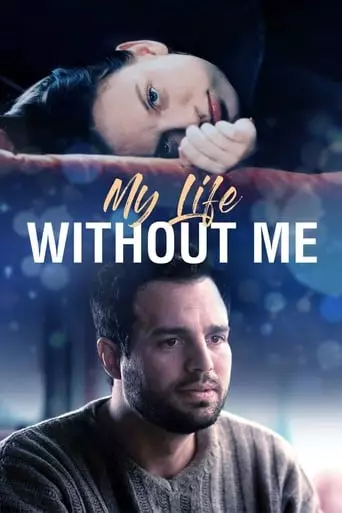Ellesmere Island, northern Canada, 1908. Josephine, a brave but naive woman, embarks on a dangerous journey through inhospitable regions in search of her husband, the explorer Robert Peary, who tries […]

Ellesmere Island, northern Canada, 1908. Josephine, a brave but naive woman, embarks on a dangerous journey through inhospitable regions in search of her husband, the explorer Robert Peary, who tries […]

As her marriage dissolves, a Manhattan writer takes driving lessons from a Sikh instructor with marriage troubles of his own. In each other’s company they find the courage to get […]

A touching story of a deaf girl who is sent to an oil rig to take care of a man who has been blinded in a terrible accident. The girl […]

A fatally ill mother with only two months to live creates a list of things she wants to do before she dies without telling her family of her illness. Directed […]

Cultural critic David Kepesh finds his life — which he indicates is a state of emancipated manhood — thrown into tragic disarray by Consuela Castillo, a well-mannered student who awakens […]
Isabel Coixet: A Visionary Voice in International Cinema
Isabel Coixet is a celebrated Spanish filmmaker whose evocative storytelling and unique visual style have earned her a prominent place in global cinema. Known for her introspective narratives, strong character development, and exploration of universal themes like love, loss, and identity, Coixet has created a diverse body of work that transcends cultural boundaries. With films such as My Life Without Me (2003), The Secret Life of Words (2005), and The Bookshop (2017), Coixet has consistently delivered thought-provoking and emotionally resonant stories.
Early Life and Career Beginnings
Isabel Coixet was born on April 9, 1960, in Sant Adrià de Besòs, a suburb of Barcelona, Spain. Her passion for storytelling emerged early, as she began writing and drawing comics in her childhood. She later studied history at the University of Barcelona and began her professional career in advertising, where she honed her skills as a writer and director of commercials.
Her advertising work not only showcased her talent for visual storytelling but also laid the groundwork for her transition into filmmaking. In 1988, Coixet made her feature film debut with Demasiado viejo para morir joven (Too Old to Die Young), marking the beginning of a prolific career.
International Recognition
Coixet gained international acclaim with her English-language films, which allowed her to reach a broader audience while maintaining her distinct artistic voice.
My Life Without Me (2003)
This poignant drama, starring Sarah Polley, tells the story of a young woman who, after being diagnosed with terminal cancer, decides to keep her illness a secret and create a list of things to do before she dies.
Critical Acclaim: The film was praised for its delicate handling of a difficult subject and Polley’s moving performance.
Emotional Depth: Coixet’s direction captured the fragility and beauty of life, a recurring theme in her work.
The Secret Life of Words (2005)
Reuniting with Sarah Polley, Coixet directed this intimate drama about a hearing-impaired woman who forms a deep connection with a man recovering from an oil rig accident.
Awards: The film won four Goya Awards, including Best Film and Best Director.
Themes: It explored healing, trauma, and the power of human connection, solidifying Coixet’s reputation for emotionally resonant storytelling.
A Multifaceted Career
Elegy (2008)
Based on Philip Roth’s novel The Dying Animal, this romantic drama starred Ben Kingsley and Penélope Cruz. The film delved into themes of love, aging, and vulnerability, showcasing Coixet’s ability to adapt complex literary works into compelling cinema.
The Bookshop (2017)
An adaptation of Penelope Fitzgerald’s novel, The Bookshop is a tale of resilience and community, centered on a woman who opens a bookstore in a conservative English village.
Awards: The film won three Goya Awards, including Best Film and Best Director.
Cultural Impact: The Bookshop highlighted Coixet’s skill in crafting period dramas with emotional and social depth.
It Snows in Benidorm (2020)
This atmospheric film blended noir elements with a meditative exploration of loneliness and self-discovery.
Hallmarks of Coixet’s Filmmaking
Isabel Coixet’s films are characterized by their introspection, emotional authenticity, and visual poetry. Key elements of her style include:
Strong Female Protagonists: Coixet often centers her narratives on complex, resilient women, offering nuanced portrayals of their inner lives.
Exploration of Universal Themes: Her work addresses love, loss, identity, and human connection, resonating with audiences across cultures.
Visual Elegance: Coixet’s background in advertising is evident in her meticulous attention to composition and lighting, creating visually striking films.
Multilingual Approach: Her ability to work seamlessly in Spanish, English, and other languages reflects her commitment to telling stories that transcend borders.
Advocacy and Contributions
Beyond her filmmaking, Isabel Coixet is a vocal advocate for gender equality in the film industry. She has used her platform to support emerging female directors and address issues of representation in cinema.
Coixet is also an accomplished documentarian, exploring social and environmental issues in works like Invisible (2007) and Listening to Judge Garzón (2011). These projects demonstrate her commitment to using film as a medium for social change.
Legacy and Influence
Isabel Coixet has established herself as one of Spain’s most influential contemporary filmmakers, with a career that bridges the gap between art-house cinema and mainstream appeal. Her films resonate with audiences for their emotional honesty, cultural sensitivity, and universal themes.
With numerous accolades, including multiple Goya Awards and international festival honors, Coixet’s work continues to inspire filmmakers and audiences alike. Her ability to tell deeply personal stories while addressing broader societal issues ensures her place as a vital voice in global cinema.
Conclusion
Isabel Coixet’s career is a testament to the power of storytelling to connect people across cultures and experiences. Through her emotionally rich narratives and visually stunning direction, she has created a body of work that celebrates resilience, empathy, and the complexities of the human spirit. As she continues to push the boundaries of her craft, Coixet remains a beacon of inspiration in the world of filmmaking.